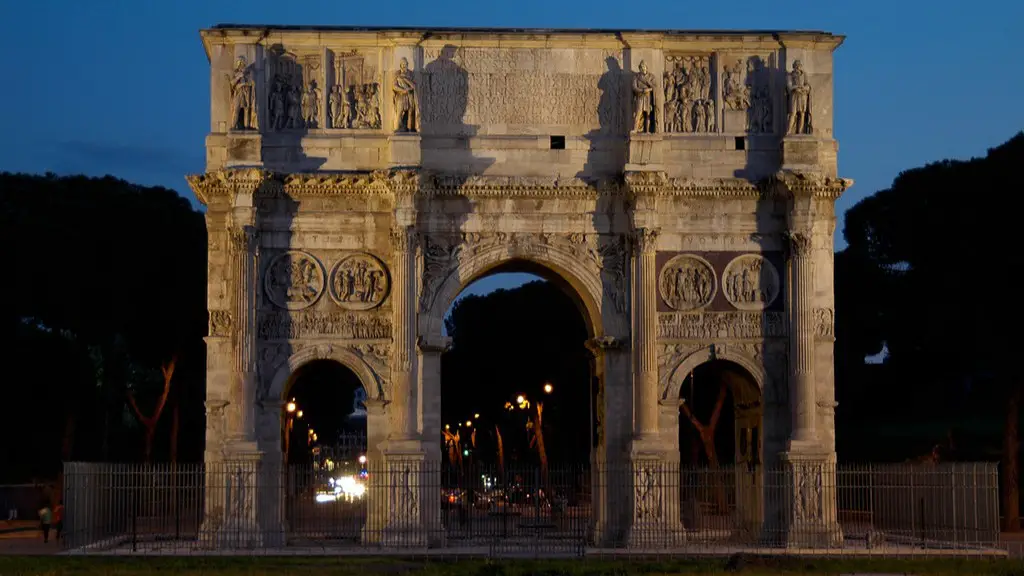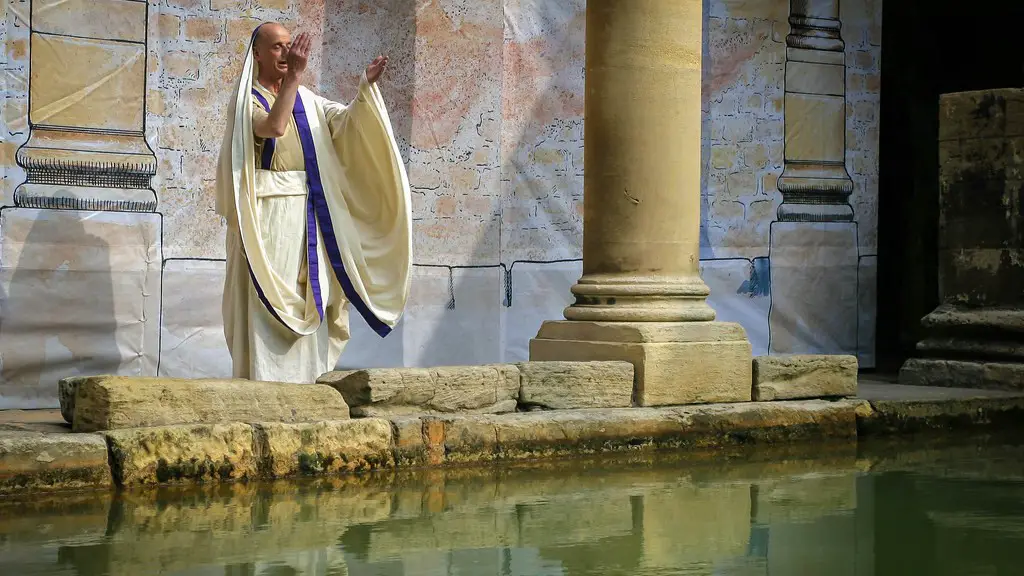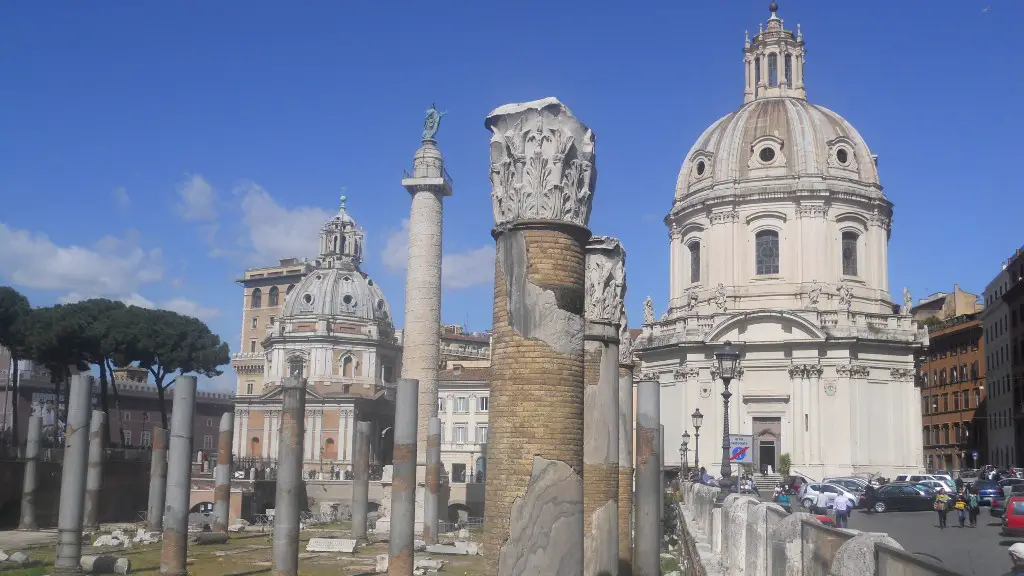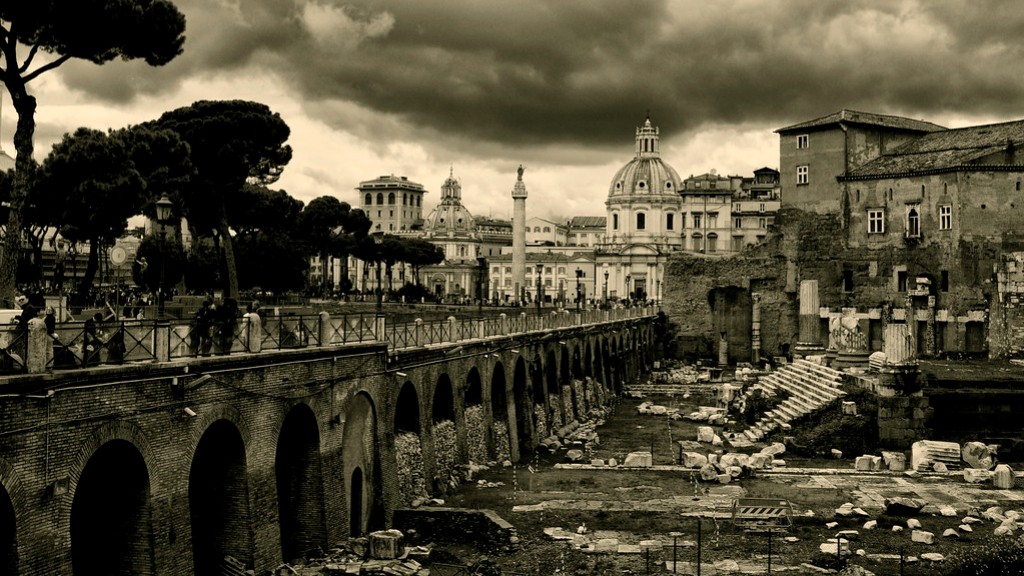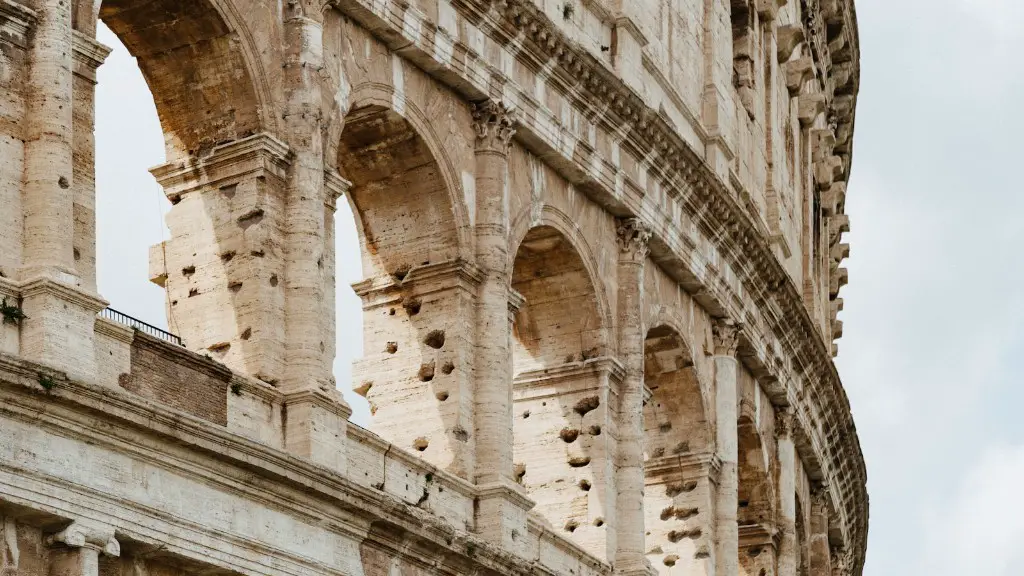Ancient Rome was one of the most powerful empires in history. The Roman Republic was founded in 509 BC, and for centuries it was the ruling power in the Mediterranean. Despite its power and influence, however, Ancient Rome had a unique system of government, one that included two consuls. So, why did ancient Rome have two consuls?
The answer to this question comes from Roman history and tradition. During the Kingdom period, Rome had a single monarch. In 509 BC, when the Roman Republic was founded, citizens began to mistrust the power of one person. So, they appointed two consuls – executive officers – to share the powers and responsibilities of leadership. In addition to helping balance power, the two consuls kept each other in check. This system of checks and balances ensured that no one consul had complete authority, and that the government would remain stable.
Some of the powers held by the two consuls included: making appointments, conducting foreign affairs and declaring war. The two consuls were also responsible for maintaining law and order, and for administrating justice. As the years passed, these powers increased and shifted to a more democratic system. Nevertheless, the institution of the two consuls remained.
According to historians, the institution of two consuls was necessary for Ancient Rome to thrive. This shared system of government ensured that no one individual had the power to implement policies without approval from the other. It also provided a sense of parity, preventing doubt, mistrust and infighting among the population. This balance of power made Ancient Rome a formidable empire, whose influence is still felt today.
The two consuls were also incredibly influential figures in Ancient Rome. They were chosen from among the nobility and held the highest offices in the Republic. This combination of power and influence made them important figures in the government and in Roman society. In addition, the consuls had ultimate authority in religious ceremonies and festivals, a role that was critical to the success and stability of Ancient Rome.
The system of two consuls may seem strange to modern eyes. Nevertheless, it was a necessary part of life in Ancient Rome. As a result of this system of shared power, Rome was able to remain for centuries as a stable and powerful center of governance. Despite the passing of time and the changing of political systems, the legacy of the two consuls remains.
The Powers and Responsibilities of the Consuls
The two consuls were appointed to share the powers and responsibilities of leadership in Ancient Rome, but what exactly did they do? The consuls had a number of responsibilities, some of which included making appointments, conducting foreign affairs and declaring war. The consuls also had the ultimate authority in religious ceremonies and festivals, a role which was seen as especially important to the stability of the Roman Republic.
The consuls could also abolish any law that had been passed by the Senate, but they could not create new laws. They had the power to veto any decision made by the Senate, but this could only be done if both consuls agreed. In addition, the consuls had the power to determine when the Senate would meet and what issues it would debate. This was an important way for the two consuls to control the legislative process.
The two consuls also had a number of other powers. They could set taxes, oversee the construction of public works, and act as liaisons between the Roman people and the gods. They could authorize the construction of temples and roads, and approve festivals and holidays. Most importantly, the two consuls held the power to declare war, a power that was seen as integral to the success of the Roman Republic.
The Selection and Tenure of the Consuls
The selection and tenure of the two consuls was an important part of Ancient Roman government. The consuls were chosen from among the nobility and had to be at least forty years old. They were appointed to serve a one-year term and could only serve twice in a lifetime. Some consuls chose to serve consecutive terms, while others declined due to age or health.
The consuls were elected by the people of Rome, with the process taking place over a two-day period. On the first day, the candidates would be presented to the public. On the second day, the people would cast their vote and the candidate with the most votes would be declared consul. The number of votes and term of office were closely monitored. Once the term of office was complete, the outgoing consul would return to private life and a new consul would be elected.
The two consuls were the highest office holders in Ancient Rome and their selection and tenure was seen as a vital part of the functioning of the Republic. The selection process ensured that only the most qualified individuals were chosen. The limited term of office ensured that the consuls’ power was checked, preventing any one person from gaining too much control. This system of government proved to be successful and aided in the stability of Ancient Rome.
The Importance of the Two Consuls to Ancient Rome
The two consuls were not only symbols of power and authority, but also key figures in Roman society. The consuls had the power and influence to shape public opinion and govern with the Roman people’s best interests in mind. This combination of power and influence made them important figures in the Republic, and their presence was felt throughout the Republic.
The two consuls were also responsible for maintaining law and order. They were able to enforce laws and punish those who violated them. This was an important part of keeping the peace and ensuring stability in Rome. They could also organize public festivals and religious ceremonies, which were important to the public morale and kept the people united.
The two consuls of Ancient Rome were also responsible for making important decisions about foreign policy. This included negotiating treaties, issuing edicts, and maintaining diplomatic relations with other nations. This was a critical responsibility, as diplomatic relations were essential to the success of the Republic.
Ultimately, the two consuls were integral to the stability of Ancient Rome. They provided a sense of parity and ensured that no one had complete control over the Republic. This helped to prevent infighting, mistrust and instability, allowing the Roman Republic to thrive for centuries.
The Legacy of the Two Consuls
The legacy of the two consuls is still felt today. The idea of shared leadership and checks and balances is still applicable to modern political systems, as is the idea of a ruler holding ultimate power over religious ceremonies and festivals. The two consuls were also important figures in Ancient Roman society, influencing public opinion and maintaining law and order.
The idea of two executive officers sharing power and responsibilities is also seen as an important precedent in the history of government. The idea of power being held by two people, rather than one, was seen as a necessary part of a successful government and is a concept that still has relevance today.
The legacy of the two consuls of Ancient Rome is still evident in society today. Even though the exact roles and responsibilities have changed over time, the idea of shared power is still seen as an important part of successful government. The two consuls were a vital part of Ancient Roman history and their legacy is still felt today.
